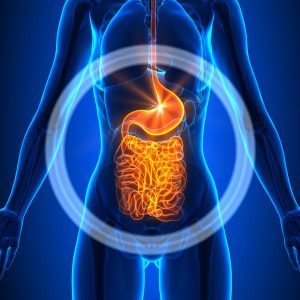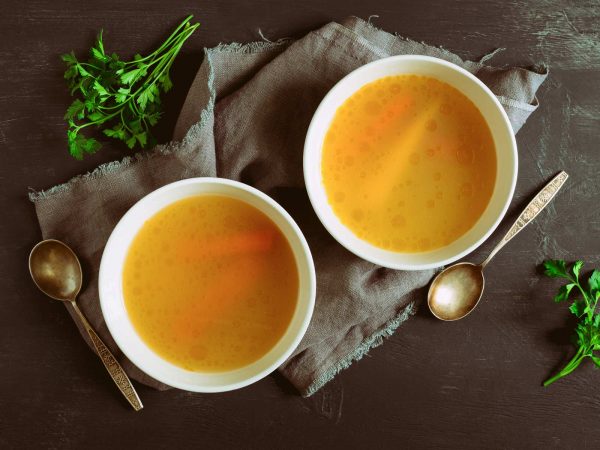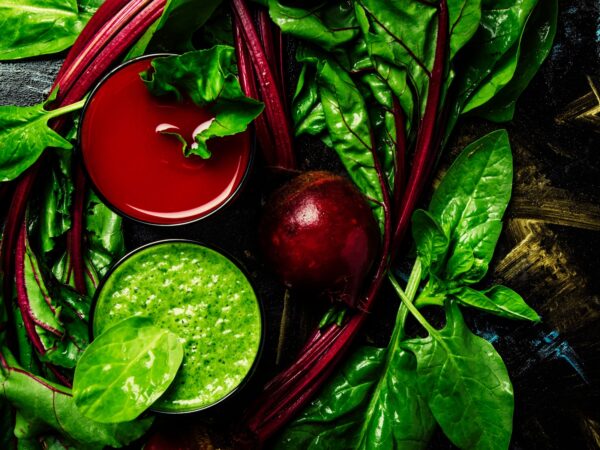Are “Aliens” Making You Hungry?
Have you ever felt strong emotional cravings for certain foods? And have you ever experienced these cravings… even when you knew that your body had enough to eat.
It’s well known that emotions and stress can play a role in food cravings. And of course, your hormones also send signals to your brain that boost hunger and cravings.
But what if there was something else that could cause these feelings? In fact, what if some of the cravings you experience did not even originate in your own brain… but instead, you were acting on impulses from another entity?
This might sound like the beginning of a science fiction story. In this case, however, the truth might be stranger than fiction…
You’ve probably heard the word, microbiome. This is the ecosystem of microbes that reside primarily in your gut. We already know that this swirling mass of bacteria play a role in your immune system. They help digest your food and even provide vitamins and nutrients your body needs.
But this is not merely a passive population of hitchhikers, happy to eat whatever you decide to feed them. In fact, a growing number of researchers believe that the bacteria in your gut can promote feelings of hunger. What’s more, they can actually influence your dietary choices so that you favor the foods THEY thrive on (or those that suppress their competitors).
And that’s not necessarily a good thing…
“Bacteria within the gut are manipulative,” says Dr. Carlo Maley, one of the authors of a study published in the journal BioEssays. “There is a diversity of interests represented in the microbiome. Some are aligned with our own dietary goals. Others are not.”
What Does Your Bacteria Want From You?
Estimates are that the average person has between 15,000 and 30,000 different species of bacteria, fungi and other microbes in their gut. Each of these species has a preference for specific food sources that allow them to feed and reproduce.
Some species of gut bacteria thrive on the fiber found in vegetables. Some are specialists that digest and prefer seaweed (these have been isolated from humans in Japan). Others thrive on cellulose (these have been found in African children raised on sorghum).
Researchers have even identified certain populations of bacteria that are common to those who have a “strong desire” for chocolate… while those who are indifferent to chocolate have a very different bacterial mix.
And then there are those species that thrive on sugar, grains and the basic ingredients of the standard processed diet…
According to author and genetic epidemiology professor, Tim Spector, the microbes living inside you, “have their own evolutionary drive to maintain their ecological niche. They will do anything to ensure their survival. This includes sending signals to the host human that they want more of the same junk food that they thrive on.”
Yes, it’s true…
To ensure their own dominance and survival, the bugs in your gut will insist that you consume whatever they say, even when it’s not in the best interests of your health.
And scientists are just beginning to understand how this works…
Willpower Is No Match For Bio-Power
It’s proven that the brain can use signaling molecules to influence gut bacteria. But the lines of communication go both ways.
Not only do these bacteria recognize the hormones and neurotransmitters your body uses, they can even synthesize these chemical signals to control your behavior!
A recent study, published in the journal BioEssays highlights the ways these “alien” hitchhikers can potentially control your brain.
- The authors believe your gut bacteria may be able to change the expression of your taste receptors, making certain foods taste better.
- They can release hunger-inducing hormones and peptides.
- They are able to stimulate the vagus nerve directly (this is the connection between 100 million nerve cells in the digestive tract and the base of the brain).
- They can even manipulate your feelings by producing compounds that are converted into dopamine and serotonin – thus taking control of your body’s basic “feel good” reward system!
These “aliens” want you to feed them and they will stop at nothing until you do.
But you CAN outsmart them and get the control back.
You are not powerless when it comes to creating a good relationship with the “aliens” that reside in your gut. The key is to do things that cause the thousands of species of good bugs to proliferate, so that they can “outcompete” and overcome the species of bad bugs.
The good news is that researchers have measured positive changes in the microbiome within just 24 hours of positive dietary changes. These are simple changes that you can make outside the lab.
Again, from the study in BioEssays:
“Because microbiota are easily manipulatable by prebiotics, probiotics, antibiotics, fecal transplants, and dietary changes, altering our microbiota offers a tractable approach to otherwise intractable problems of obesity and unhealthy eating.”
What Can You Do to Cultivate a Healthy Inner Ecosystem?
As I’ve noted in previous essays, here are the six easy steps to a balanced microbiome and a better relationship with food:
- Re-populate the good bacteria: Populate your healthy gut bacteria with good probiotic food sources including lacto-fermented vegetables (like sauerkraut and kimchi), kefir, kombucha and other foods preserved using traditional methods. Probiotic supplements are also useful in changing gut populations.
- Maintain daily with natural probiotic foods: Our ancestors obtained a lot of their probiotic bacteria from the soil. These bacteria, called soil based organisms (SBOs), support digestive balance. Consume fresh, organic veggies raised in healthy soil, and don’t wash them too ‘clean’.
- Feed the good bacteria and starve the bad: Many vegetables contain powerful prebiotic fiber that feeds our good bacteria. Onions, jicama, garlic and leeks are great choices. Reduce and eliminate sugar along with processed grains. These feed the growth of hostile microorganisms.
- Don’t kill them with pesticides and antibiotics: Choose organic, pesticide-free foods to avoid destroying the good bacteria you are working so hard to nourish. Source grass-fed meats, organic pastured poultry, organ meats and wild caught fish, which are free of antibiotics. Avoid antibiotics and use only when necessary.
- Minimize modern products: To maintain the integrity of the gut, minimize or eliminate the use of antibacterial products. Consume only filtered or spring water, which doesn’t contain chlorine, perchlorate and fluoride. And remove gut-damaging processed foods such as those containing aspartame, sucralose and preservatives. These have been shown to destroy gut bacteria.
- Stress Less: Our ancestors experienced periods of stress followed by periods of rest. By adopting a similar lifestyle we can influence our microbiota in positive ways. In the words of the popular book “don’t sweat the small stuff”.
Are You Growing Sugar-Craving or Vegetable-Loving Bugs?
Our microbiome starts growing the day we are born; the type of birth we had and the health of our mother begins the process. Our environment influences these bugs as we journey through life. Modern processed diets and toxic lifestyles influence the growth of the bad bugs, while ancestral diets support the good guys.
It’s like a garden; plant it well, remove the weeds and don’t kill the flowers. Your current food preferences provide feedback about what type of garden was planted and how it was maintained.
By choosing to eat and live the way our ancestors did, we can improve the balance of our microbiome and our relationship with food.





Leave a Reply